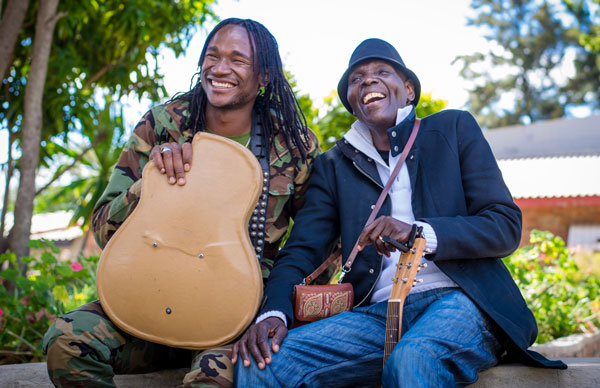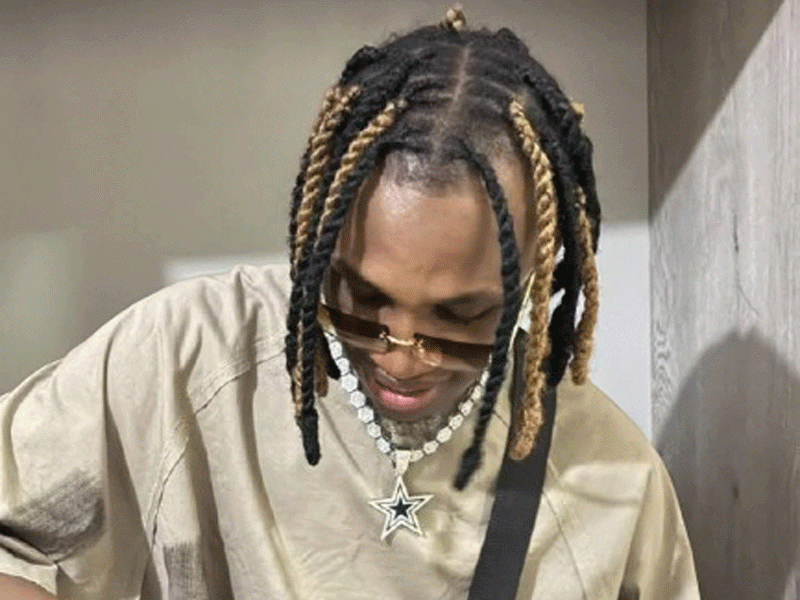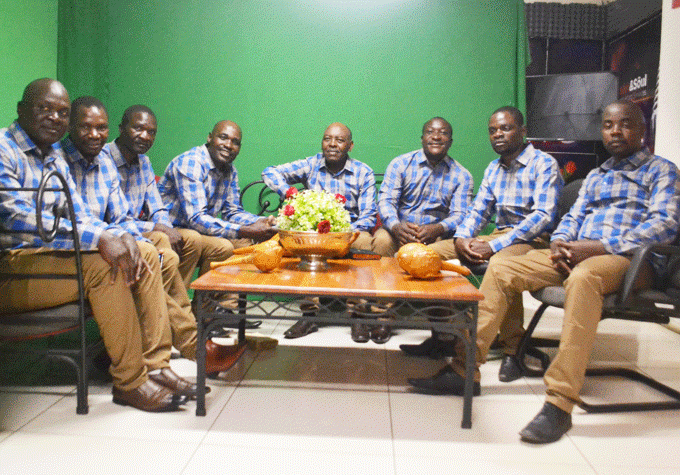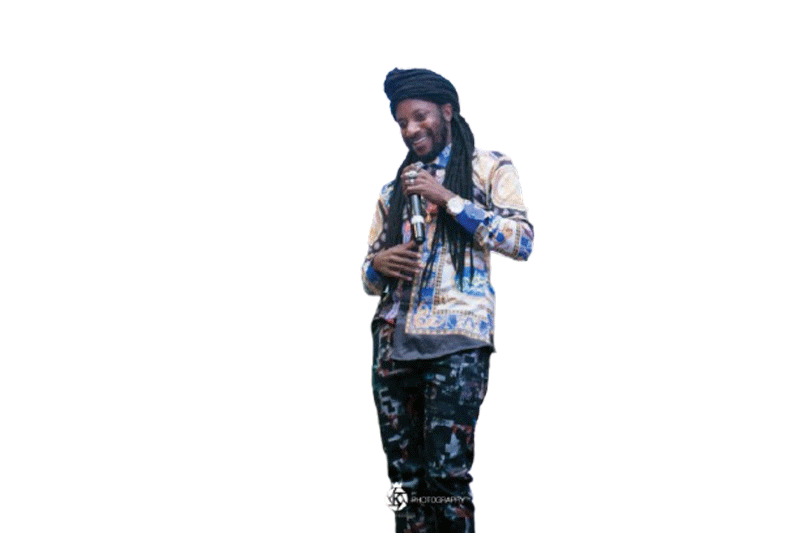
Oliver Mtukudzi and Jah Prayzah are ranked among Zimbabwe’s top musicians who have done extensive collaborations with other musicians over the years.
By Fred Zindi
There are many benefits to collaborating with other musicians.These include creative growth, more press opportunities, and a chance for a whole lot of exposure internationally through platforms such as television, radio, YouTube, Whatsapp, Trace Africa, Spotify and other networks.
Collaborating with another musician can produce great creative results. At the very least, working with someone new can take you out of your comfort zone, introduce you to new songwriting practices and ideas, and force you to up your game.
For independent musicians, there is another major advantage to collaborating with another artiste. It can be an awesome boost of exposure. Strength is in numbers, as they say, and bringing someone new into your creative circle is a great way to expand your fan base and contacts and get your name out there.
However, at times, collaborations do not necessarily raise some lesser known artistes to any higher levels than they were before, especially if the musician has collaborated with someone who already has a name. Think of all the local artistes who have collaborated with Mtukudzi, for instance. Apart from Winky D, are these artistes now likely to fill up the Harare International Conference Centre on their own? Artistes such as Mathias Julius, Joss Stone, Mathias Mhere, Ex-Q, Sulumani Chimbetu and Berita Khumalo are just a few of those who have collaborated with Mtukudzi. Some people do not even know some of these artistes mentioned above and it is difficult to say that the collaborations with a big name like Mtukudzi’s have changed their fortunes.
In 1985, USA for Africa produced We Are The World and generated over $100 million. This was due to a collaboration of many artistes, who included Michael Jackson, Lionel Richie and Diana Ross which aimed at alleviating hunger in Africa. It did for a while.
My recent trip to Jamaica set me thinking about the worthiness of collaborations between musicians. When I was in Kingston, I passed through the late Gregory Isaacs’ home. Gregory was a household name not only in Jamaica, but all over the world. I asked Boysie Woolcock who had told me about how he was present when Gregory wrote the song Night Nurse (and that the song referred to cocaine as his Night Nurse) if he knew about King Isaac from Zimbabwe. He said he had never heard of that name. I further visited 10 music stores to find out if they had the CD Isaac Meets Isaacs in stock. Nobody, except one, had heard about it.
- Chamisa under fire over US$120K donation
- Mavhunga puts DeMbare into Chibuku quarterfinals
- Pension funds bet on Cabora Bassa oilfields
- Councils defy govt fire tender directive
Keep Reading
Isaac Kalumbu, better known as King Isaac, reached a milestone in his career when reggae music promoter Gwen Clemens introduced him to Leroy Sibbles, for whom he opened up shows in 1998 in Detroit, Michigan, US.
In December 2004, King Isaac was invited by veteran singer, the late Sugar Minott, to perform at Minott’s annual Reggae in The Hills concert where he was well-received, owing to his powerful vocal delivery and stage charisma. During subsequent summers, King Isaac travelled to Kingston, where he worked with many veteran reggae artistes, including Gregory Isaacs, Leroy Sibbles, Dean Fraser and the legendary U Roy.
King Isaac and Gregory Isaacs began working together in 2005, and completed their work in July of 2009 when the album Isaac Meets Isaacs was released. This is the album, which was nominated for a Grammy (unfortunately after the death of Gregory Isaacs) in the category of Best Reggae Album for the Year 2010. King Isaac did not win the award.
So how come the people I talked to had never heard of King Isaac?
Did the collaboration between Isaac Kalumbu and Gregory Isaacs increase the fortunes of King Isaac? I have my doubts.
Two years ago, I was in Dar es Salaam, Tanzania, attending a conference after Jah Prayzah had released his collaborative effort with Tanzanian star Diamond Platinumz titled Watora Mari. I had six Jah Prayzah albums which I gave to six conference delegates. All of them asked me the same question: “Who is he?” I was surprised to find out that they had never heard of this man, but knew all about Diamond Platinumz. Maybe it was too early after the release of the song.
I began to wonder if these collaborative efforts make an impact. Jah Prayzah has been involved in many collaborations with artistes like Botswana’s Chama Girl in Dali Wangu, South Africa’s Mafikizolo in Sendekera, Nigeria’s Davido in My Lilly, Jamaica’s Jah Cure in Angel Lo (which was recorded in Barcelona, Spain) and lately with Zimbabwe’s Killler T in Hondo. Prior to that he had also done several collaborations with local artistes who include Ammara Brown, former Frontline Kids’ Noel Zembe, Sebastian Magacha and Tahle we Dzinza. Apart from Ammara, I am not sure whether the collaborations with the others had any effect.
Many musicians build their hopes on the fact that if the person they are collaborating with is worth their salt, then chances are they will also have built up a similar fan base. Their music gets exposed to new people; people who have a predisposition to like your music based on the positive association that you have with one of their favourite artistes.
It’s not just fans that you can gain when collaborating with another musician, it’s also their network of useful contacts such as gig promoters, producers, sound people, merchandise manufacturers and bloggers, among others. If you are appearing on the same bill, you can even get up on stage together to do a rendition of that sweet song you recorded together.
Being on friendly terms with someone who has connections means that you are also connected. And being connected with the right people is a sure way to get your band noticed.
As somebody who has spent the past few years working in music journalism, I can tell you that collaborations make for great press because they’re still relatively unusual. Collaborations between two established artistes don’t happen every day.
So when they do, they are big news. If newspapers are going to afford you more column inches because of your association with another artiste, that is more exposure for you.
Finally, the creative benefits are worthwhile too. Collaborating will allow for your music to grow since you now have to integrate another artiste’s creativity with your own. By doing so properly, your sound can further evolve into new places which will also allow you to attract new potential fans. Look at Jah Prayzah’s collaboration with Davido in the song, My Lilly which took a different sound altogether.
Making music alone is fun. You’re in charge of everything. However, collaborations are extremely beneficial in several ways.
If you have created music for several years, it can be tough sometimes to find new ideas to start a song with. You find yourself repeating the same things over and over again. Same melodies, same drum patterns, even same lyrics. It becomes boring after a while.
Every musician has their own way of making music. Therefore, by collaborating you can get some fresh ideas for your tunes. You can learn a great amount by working with another musician on your next track.
When you combine two individual and unique minds together to create a musical piece, it can turn out pretty crazy.
Even if your music styles would be very similar, it’s likely that the end result would still become something unexpected.
Also, many fans enjoy collaborations. You’re basically introducing your fans to new music.
When an artiste reaches out to another with an intention of collaboration, they should always remember one thing: Both parties need to benefit from the collaboration.
They should not try to fool bigger artistes into collaboration just because they want something out of them. If you want to increase your chances of any collaboration, ask yourself: What are you bringing to the table? What value are you giving to the person you’re trying to collaborate with? Some smaller artistes who have nothing to bring to the table end up offering money to the bigger artiste, but still fail to change their fortunes. When the collaboration flops you begin to wonder, what next?
On a different note, the University of Zimbabwe is offering as a community service to musicians; a free one-day information and communication technology workshop in website design, YouTube, Powerpoint and internet on Thursday.
Interested musicians should call 303271.
lFeedback: frezindi@gmail.com










